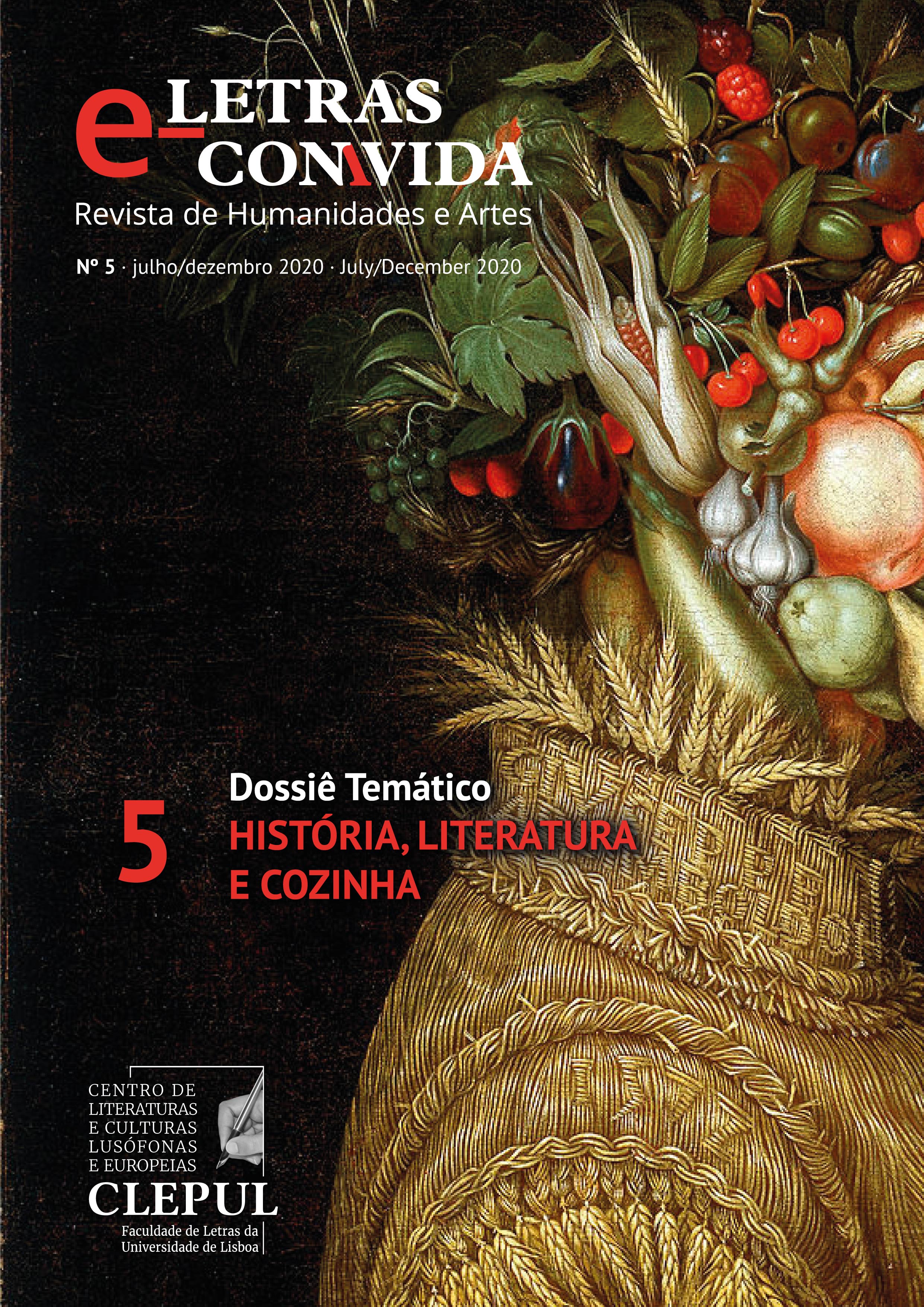On rivers and the sea in «De Antiquitatibus Lusitaniae» by André de Resende
DOI:
https://doi.org/10.53943/ELCV.0220_04Keywords:
André de Resende, De Antiquitatibus Lusitaniae, food, ichtyologyAbstract
André de Resende's De Antiquitatibus Lusitaniae (1593), one of the most notable works of Portuguese Humanism, reveals the erudition of an antiquarian, pioneer in Archaeology and Epigraphy with a deep domain of classical, philosophical, theological and Biblical texts. He investigated in an original way how Portugal had born and grew. When pointing out history in the space, he was rigorous in Geography. In the dispersed references on agriculture and cattle, and especially in the 2end book dedicated to the rivers and respective fish fauna, the focus of our reflection, he discloses to an implicit knowledge of his own time hygienists theories, revealed in the interdependence between environment, man and food. The original Latin text confrontation with medical works allowed us to find indications of an humoural matrix speech.
References
Fontes
Cardoso, F. R. (1602). Tractatus de sex rebus non naturalibus: nunc primum in lucem editus a doctore Ferdinando Roderico Cardoso in arte Appolinea quondam Conimbricae primario professore, nunc vero Regia Magestatis in regnis Lusitaniae Prothomedico dignissimo. Ad Philippum III Hispanium regem. (1.ª ed.) Ex Officina Georgii Rodriguez. Olyssipone
Castro, A. A. de (1636). Doctoris Andreae Antonii de Castro Serenissimi Brigantiae Ducis, protho-medici et Orensis arcis praefecti maximi, De febrium curatione Libri tres. Quibus accessere duo libelli De simplicium medicamentorum facultatibus, et alter de qualitatibus alimentorum, quae humani corporis nutritioni sunt apta. Cum Indice rerum, et verborum scitu dignorum locu-pletissimo. Apud Emmanuelem Carvalho ducis typographum. Villaviçosae
Fonseca, F. S. da (1626). Regimento para conservar a saúde e a vida, dividido em dois diálogo: o primeiro trata das seis cousas naõ naturais; o segundo das qualidades do ar, sítios e mantimentos do têrmo de Lisboa. (1.ª ed.). [s.n.]. [s.l.]
Henriques, F. (1721). Anchora medicinal para conservar a vida com saúde. (1.ª ed.). Officina da Musica. Lisboa Occidental
Lopes G. (1564). Commentarii de varia rei medicae lectione, Medicinæ Studiosis non parum utiles. Quorum Catalogum ab Epistola sequens pagella indicabit. (1.ª ed.). Apud Viduam Martini Nutii, Cum Gratia et Privilegio. Antuerpiae
Resende, A. (1533). Genethliacon. (1.ª ed.). [s.n.]. Bruxelas
Resende, A. (2009). Antiguidades da Lusitânia. Portugaliae Monumenta Neolatina. Vol. 3. (Introd. trad. e comentário de R. M. Rosado Fernandes). Estabelecimento de texto por S. Tavares de Pinho. Imprensa da Universidade de Coimbra. Coimbra
Estudos
Braga, I. D. (2015) Carne e Peixe: Uma Hierarquia de Consumos Alimentares. Em: I. D. Braga, e P. D. Braga (coord.). Animais e Companhias. Círculo de Lleitores. Lisboa
Castro, I. O. (2018). Corpos, palatos e sensibilidade médica. Em: A. Cardoso, N. M. Proença, (coord.) Dor, sofrimento e saúde mental na Arquipatologia de Filipe Montalto. Húmus. Lisboa
Castro, I. O. (2011). Prática médica e alimentação nos textos portugueses seiscentistas. Em: P. F. da Costa e A. Cardoso (org.). Percursos na História do livro médico. Colibri. Lisboa
Encarnação, J. (1991). da Invenção de Inscrições Romanas pelo Humanista André de Resende. Biblos, 67: 193-221
Fernandes, R. M. R. (1984). Méthodologie et histoire dans De antiquitaibus Lusitaniae d’André de Resende. Actes du XXIe Colloque International d’Études Humanistes L’Humanisme et L’Europe U F.C.G./Centre Culturel Portugais. Paris: pp. 487-505
Newman, L. F. (1946). Some notes on foods and dietetics in the sixteenth and seventeenth centuries. The Journal of the Royal Anthropological Institute of Great Britain and Ireland, 76, 1: 39-49
Nutton, V. (2004). Ancient Medicine. Routledge. London and New York
Pereira, M. H. R. (1973). Obras Médicas de Pedro Hispano. Universidade de Coimbra. Coimbra
Pina, L. (1965). A fauna marítima e fluvial na alimentação portuguesa do século XVIII. Revista de Etnografia. Imprensa Portuguesa. Museu de Etnografia e História, 9, vol. 5, t. 1: 5-42
Waquet, F. (1988). Le latin ou l’empire d’un signe: XVIe–XXe siècle. Albin Michel. Paris
Downloads
Published
Issue
Section
License
Copyright (c) 2020 e-Letras Com(n)Vida

This work is licensed under a Creative Commons Attribution 4.0 International License.
Authors retain copyright and grant the journal right of publication with the work simultaneously licensed under a Creative Commons Attribution License that allows sharing the work with recognition of authorship and publication in this journal.











